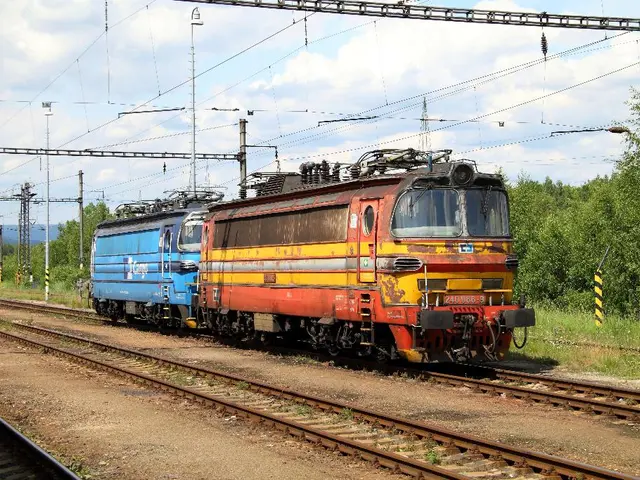Struggle for raw resources: is Germany perhaps off-target?
In the global race for critical resources, Germany and the European Union (EU) are increasing their endeavors to secure strategic raw materials, acknowledging a competitive deficit versus global peers, primarily China. Maria-Yassin Jah, head of Transition Finance at SLR Consulting, stressed this urgency to the Berliner Zeitung.
The call to action stems from the final report of a commission mandated by the think tank Global Perspectives Initiative to prioritize the topic "World in Transition - Germany and the Global South." Jah's area of expertise was resources and energy transition, along with the financing of related activities.
Over the past few years, the EU has undertaken multiple initiatives to enhance its control over vital raw materials, spanning 13 member states, including Germany. These strategic projects, launched in early 2025, cover the entire value chain for key materials such as lithium, nickel, cobalt, and more. The projects are essential for energy transition technologies and defense.
The EU's Critical Raw Materials Act (CRMA), adopted in 2023, forms the backbone of these initiatives, with the intention to ensure supply security and resilience. In 2025, the European Investment Bank launched a critical minerals initiative with a funding of EUR 2 billion, featuring a dedicated resource hub for raw material projects and support for battery manufacturing.
The EU encourages circularity — recycling and reusing materials — as a crucial step to reduce external dependencies and minimize environmental impact, linking it closely with its energy transition objectives.
Recognizing the insufficiency of domestic capacity expansion, the EU has formed 14 raw material partnerships to diversify supply and mitigate risks. These partnerships, such as the ones with Zambia and the Democratic Republic of Congo, aim to stimulate sustainable growth in partner nations while fostering resilience.
In terms of Germany's role, the country is contributing significantly to mining climate-neutral lithium domestically, in line with EU objectives of raw material independence. Despite efforts, Germany and Europe remain over 90% reliant on China for certain raw materials, accentuating the critical necessity of these initiatives.
In contrast, China holds a robust position in the supply chains of many critical raw materials, with Germany and the broader EU heavily dependent on Chinese imports. The EU's strategy involves constructing a resilient, diversified supply chain by actively developing internal capacities while forming strategic international partnerships. The CRMA lays out clear targets and offers special project statuses to expedite supply chain development.
Both the EU's mobilization of massive public investment and the creation of regulatory frameworks to coordinate mining, processing, and recycling are comparable to efforts by other major economies. The establishment of a joint purchasing platform for critical minerals and potential stockpiling initiatives further demonstrate a strategic and collaborative approach.
Overall, the EU and Germany are vigorously pursuing a multi-pronged strategy that includes domestic development, regulatory reform, financial investment, circular economy, and international partnerships to wean themselves off dependence on global suppliers, especially China. The goal is to create a resilient and competitive advantage in raw materials supply chains aligned with their strategic green and digital transition objectives.
- Enhancing their competitive stance against China, Germany and the European Union (EU) are actively investing in the finance sector to fund energy transition projects, particularly those focusing on strategic raw materials like lithium, nickel, and cobalt.
- In an effort to reduce external dependencies and increase resilience, the EU is actively promoting the recycling and reuse of critical raw materials, linking this circular economy approach closely with its energy transition objectives.








